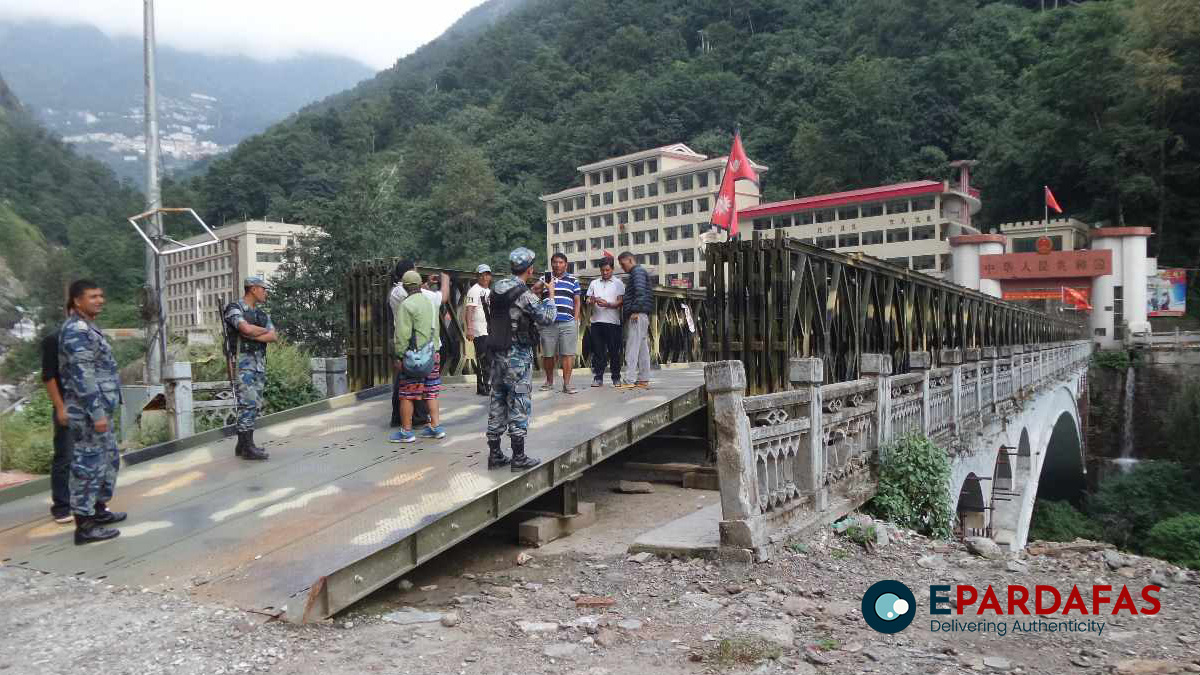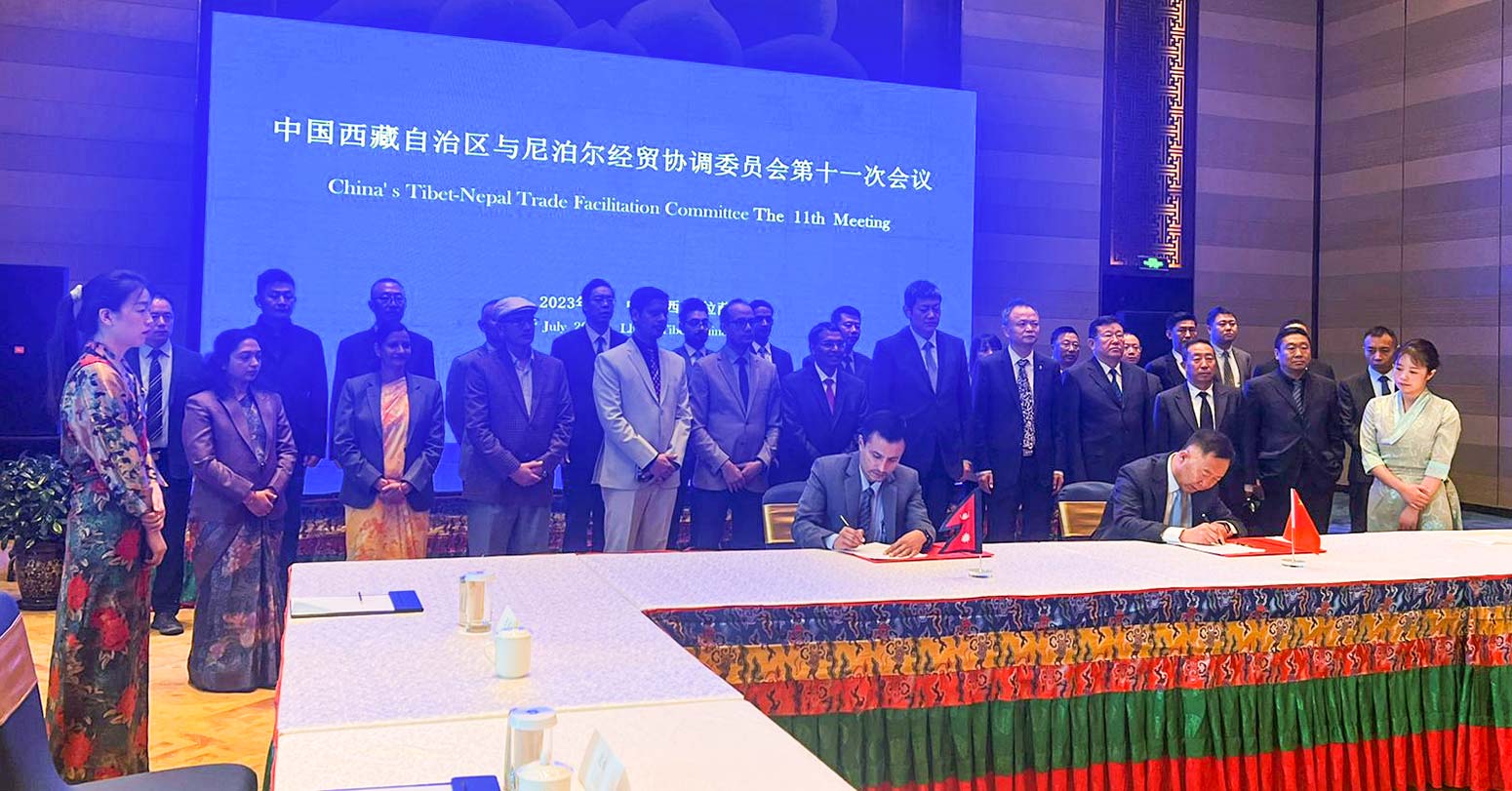
Tatopani Border Crossing to Reopen for Human Movement After Eight Years

Tatopani, the historical border crossing point between Nepal and China, is set to reopen for human movement, ending an eight-year-long restriction on people’s movement at the border. The decision was reached during the eleventh meeting of the Nepal-Tibet Trade Facilitation Committee, where both nations agreed to allow the movement of individuals through the Tatopani crossing.
Ramchandra Tiwari, joint secretary of Nepal’s Ministry of Industry, Commerce, and Supply, expressed satisfaction with the outcomes of the recently concluded meeting in Tibet. He confirmed that both sides had agreed to open the Tatopani border for human crossings within the next two months, with a target date set for September.

“The meeting was productive, covering several crucial issues, and we reached mutual agreements,” Tiwari said. “The Chinese authorities have consented to open the Tatopani crossing for human movement in September. This development is indeed a significant achievement for us.”
Background and Struggle:
The Tatopani border crossing, which had been closed for nearly four years after the devastating earthquake in 2015, was reopened on May 30. However, during this period, it was primarily used for import and export activities, and people were not permitted to pass through.
Even after the reopening of the border, China had not authorized exports, and due to the COVID-19 pandemic, the checkpoint functioned unilaterally, allowing only one-way operation. It was only on May 1, when two-way trade resumed through the Tatopani border for import and export, but the movement of individuals remained restricted.
Nepal had consistently advocated for the opening of the border to human traffic, and their persistence has finally yielded positive results.
Impact on Nepal’s Economy:
The economic repercussions of the closed border were far-reaching. Many Nepalese businesses were forced to shut down as they could not sustain their operations without access to the Chinese market. The restriction on human movement also hindered the growth of tourism, as the Tatopani border is a significant gateway for travelers exploring the natural beauty and cultural heritage of both Nepal and Tibet.
As trade activities stalled and businesses collapsed, countless individuals faced unemployment and financial hardships. The unyielding stance of China during the COVID-19 pandemic only exacerbated the situation, as the Tatopani checkpoint functioned unilaterally, allowing only one-way trade, and halted the movement of individuals entirely.
Loss of Lives:
Tragically, the closure of the border and its impact on Nepal’s economy had more severe consequences than just financial hardship. Some businessmen, unable to cope with the mounting pressures and financial losses, reportedly succumbed to the immense stress and despair, leading to tragic loss of lives. These deaths serve as a grim reminder of the toll that prolonged economic crises can take on individuals and families.
Read this:
Tatopani checkpoint wearing deserted look, some committed suicides, many left business
China’s Sloppy Trade Policy Leaves Border Market and Businesses Deserted
China’s Dual Assault: Worsening Nepal’s Economy While Deepening Political Engagements
China’s ‘undeclared blockade’ continues on the northern border, locals and businessmen affected
Road Woes: Tatopani Crossing’s Operation Hinders Drivers, Businesses, and Economic Prosperity
China’s undeclared blockade taking Nepalese lives, who is responsible?












Comments